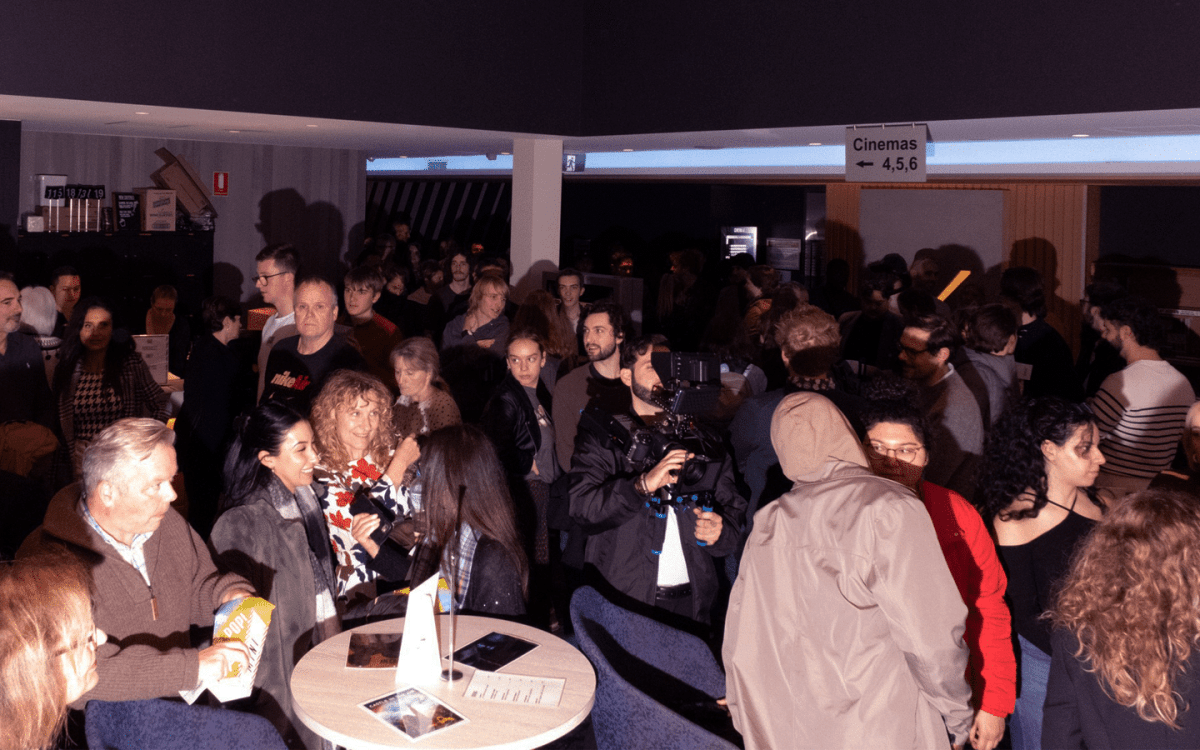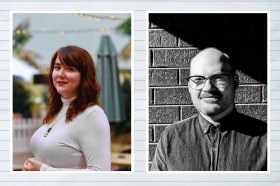South Australia is well-known as the Festival State, and it is filled to the brim with creative people from all walks of life. It is only in recent years, however, that local, emerging and diverse filmmakers have had multiple spaces dedicated to showcasing their work. This rise in South Australian film festivals is a boon for both the film industry and film lovers alike.
The Adelaide Film Festival (AFF) is known for sharing South Australian talent alongside national and international films. However, it is often cited as the only film festival based solely in the state.
Nick Buckland, one of the organisers behind the new Glenelg Film Festival (GFF) says, ‘There are now more [film festivals] happening in South Australia than there have ever been, which is actually great.’ He notes that this rise is ‘not competition’, but ‘people joining in the celebration’ of films.
The GFF has been hosting monthly short film screenings in preparation for its inaugural film festival in March 2024. These sessions also provide a unique opportunity to increase awareness of the local film industry.
Read: Adelaide Film Festival 2023: ten films to watch
Buckland continues: ‘It’s motivating some people to get involved. People are coming along and saying, “I didn’t realise that this was all happening; I didn’t realise there was so many films being made.”
‘Even people in the industry said are there isn’t enough film, there are not enough films being made to do a screening every month.’
Yet the team behind the GFF has managed to screen 10 unique short films each month, with some of these films being selected to go through to the larger film festival in March.
‘We want to celebrate the abilities and the skills that we have in South Australia and also create another [festival], and it doesn’t matter how many there are, because there’s never going to be too many. It’s another platform for all of these creative, enthusiastic, short filmmakers to [have] their work seen,’ says Buckland.
The location of Glenelg is also a significant one. Not only is it the base of operations for Buckland and his business partners, Krystal Cave and Sarika Young, but it’s a beautifully scenic area. Buckland says: ‘When I think of the Cannes Film Festival, I think of the exotic surroundings, the environment – it has that Riviera feel. And that’s what we have here in Glenelg; this is the French Riviera of Australia. South Australia, certainly, but to my mind, Australia as a whole.’
This increase in opportunities for local filmmakers to showcase their work is an important step in encouraging appreciation for film and the arts. It is also critical for the attendees and the many people invested in filmmaking, from the actors and directors, art department and editors, to the producers, cinematographers and writers.
New film festivals finding their niche
As new film festivals appear in SA they intentionally fill a hole within the previous offerings. Often this is by highlighting and diversifying a certain aspect of film, be it the topic or the creators. This trend seems to have started with the Fleurieu Film Festival in 2016, which focuses on works by new and emerging filmmakers, and extends to the newest of film festivals starting this year.
The inaugural 2023 Trilogy Film Festival, for example, will be premiering various dance films created in Dance.Focus, a dance film initiative by Dance Hub SA, and works that couldn’t be presented during the chaos of the pandemic. The Adelaide Independent Film Festival, by comparison, seeks to include ‘short films from independent filmmakers who are willing to test the boundaries of cinema and thrive in the realm of uncertainty’ in its inaugural festival.
The Port Adelaide Diversity and Inclusion (PADI) Film Festival has similar goals in terms of creating a space for diverse filmmakers to showcase their work. PADI emerged in August of 2022 with the aim of being a ‘vehicle for social change’, showcasing works by and for underrepresented and minority communities.
PADI has certainly achieved this so far, with a diverse range of cultural backgrounds and languages being shown alongside representation from various disability and LGBTQIA+ communities, and more. Filled with films by emerging and established filmmakers, both local and international, PADI provides a space to appreciate the wide range of human experiences.
PADI’s organiser, Yogi Devgan, says he began the film festival after noticing a lack of representation of ‘diversity and inclusion for filmmakers, and their stories or stories about them’. After discussions with the local mayor about this issue, and support from the City of Port Adelaide Enfield and local businesses, PADI Film Festival was born.
Devgan says: ‘I think filmmakers, especially in Australia, need to be thinking out of the box – stories that could be different than what has been told previously. Australia is full of immigrants and full of rich culture, it’s full of other stories. And all the stories are around us.’
He hopes the festival will ‘encourage [filmmakers] to make a story like that’ because as creatives ‘we get influenced or inspired by others‘ stories’. If we don’t see these diverse stories, we don’t get that opportunity to create something innovative and meaningful with new perspectives.
In 2023, PADI Film Festival has expanded significantly, with a night of short films and the premiere of a feature film, followed by a Children’s Film Festival and a showcase of live performances. It’s a diverse offering for attendees, with Devgan saying he’s ‘trying something new’, hoping to break boundaries and show that ‘anyone can try anything out’.
The most important part of the festival for Devgan is providing filmmakers with acknowledgement of their work. He says watching the filmmakers ‘being happy to see their work on a big screen is just amazing. It’s like, “Wow, at least I’ve done something, made somebody smile”.’
Showcasing this creativity to the general public, and awarding the many people involved in making a film for the hours it takes to create something they are proud of, is a necessity. Without it, the spark and joy of filmmaking for emerging creatives would be lost.
The future of independent film festivals in SA
Arts funding in South Australia has been declining in recent years, especially when compared to other states, and this trend doesn’t seem to be changing any time soon. Despite this lack of overall funding, local councils appear to be a common factor in these smaller film festivals making it off the ground.
Both PADI and GFF organisers speak of how their local mayors and councils backed their plans for a film festival. Buckland adds: ‘Jetty Road Traders and City of Holdfast Bay, who are both our business partners in the presentation of the festival, are looking at GFF being an annual event that grows in importance and significance.’ PADI is similarly wanting to grow in the future, having gained a partnership with Adelaide Fringe and looking to expand into the city and rural areas.
The key to these festivals surviving, however, lies with the community. As supporting them, be it as a filmmaker, a volunteer or an attendee, is essential for emerging and diverse filmmakers.
The first step in this endeavour is awareness and acknowledgement. So here is a list of upcoming South Australian Film Festivals (and some competitions):
- Adelaide Film Festival – screening in 18-29 October 2023.
- Adelaide Independent Film Festival – submissions close 16 September 2023. Screening on 14 October 2023.
- Barossa Youth Short Film Competition – submissions close 8 October 2023. Screening in November 2023.
- Fleurieu Film Festival – submissions close 4 December 2023. Screening on 3 February 2024.
- Glenelg Film Festival – monthly submissions for Short Films. Short Film screenings on final Monday of the month, with annual Film Festival screening in March 2024.
- Launch Film Festival – submissions close 5 November 2023. Screening on 25 November 2023.
- MADCAP Comedy International Short Film Festival – screening on 3 November 2023.
- Port Adelaide Diversity and Inclusion Film Festival – screening in August 2024.
- SAGA Gawler: Women’s International Film Festival – screening on 30 September 2023 and in March 2024.
- Trilogy Film Festival – screening on 25-26 October 2023.
- UnderExposed (Adelaide Fringe Film Festival) – to return in 2024.
This article is published under the Amplify Collective, an initiative supported by The Walkley Foundation and made possible through funding from the Meta Australian News Fund.





